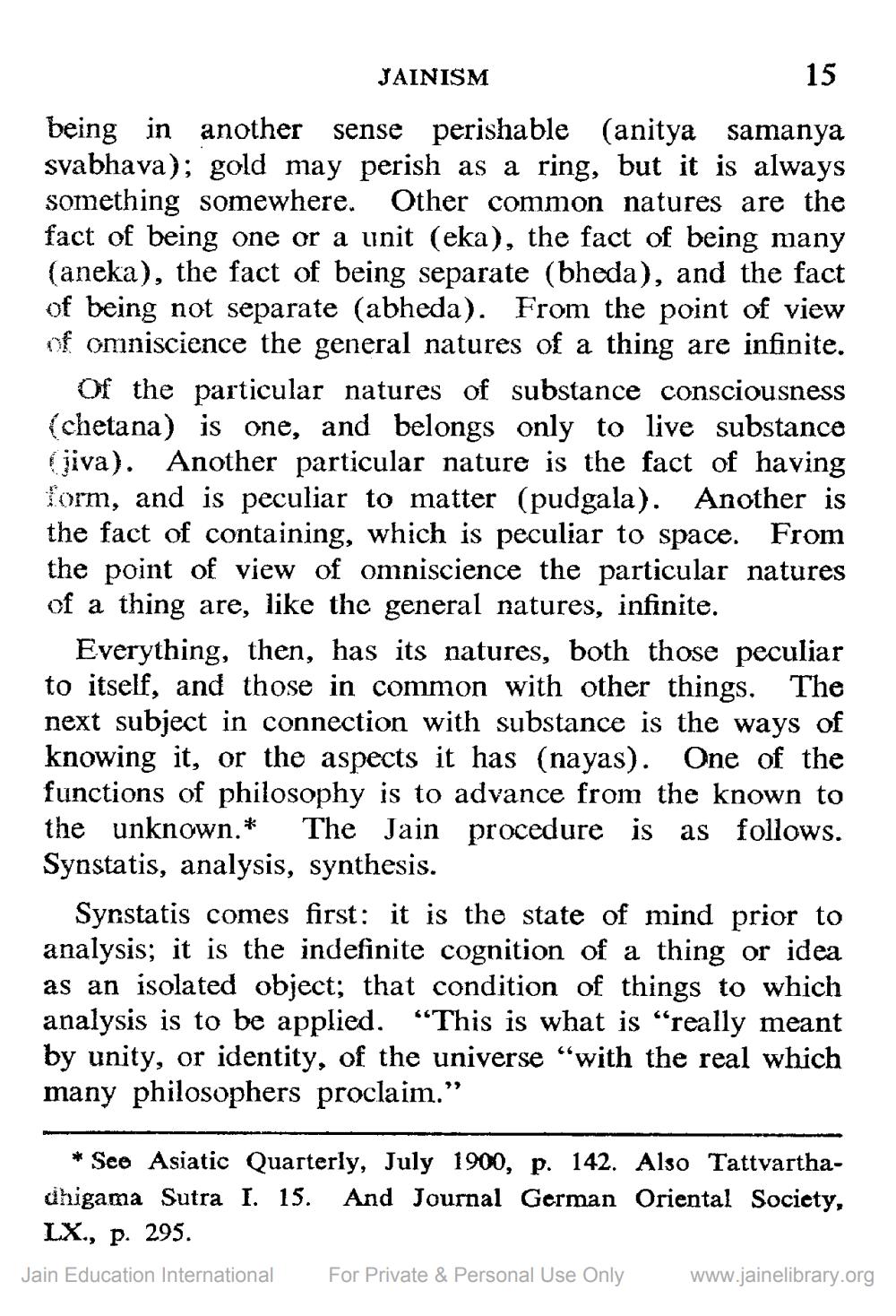________________
15
JAINISM being in another sense perishable (anitya samanya svabhava); gold may perish as a ring, but it is always something somewhere. Other common natures are the fact of being one or a unit (eka), the fact of being many (aneka), the fact of being separate (bheda), and the fact of being not separate (abheda). From the point of view of omniscience the general natures of a thing are infinite.
Of the particular natures of substance consciousness (chetana) is one, and belongs only to live substance (jiva). Another particular nature is the fact of having form, and is peculiar to matter (pudgala). Another is the fact of containing, which is peculiar to space. From the point of view of omniscience the particular natures of a thing are, like the general natures, infinite.
Everything, then, has its natures, both those peculiar to itself, and those in common with other things. The next subject in connection with substance is the ways of knowing it, or the aspects it has (nayas). One of the functions of philosophy is to advance from the known to the unknown.* The Jain procedure is as follows. Synstatis, analysis, synthesis.
Synstatis comes first: it is the state of mind prior to analysis; it is the indefinite cognition of a thing or idea as an isolated object; that condition of things to which analysis is to be applied. “This is what is "really meant by unity, or identity, of the universe “with the real which many philosophers proclaim.”
* See Asiatic Quarterly, July 1900, p. 142. Also Tattvarthadhigama Sutra I. 15. And Journal German Oriental Society, LX., p. 295.
Jain Education International
For Private & Personal Use Only
www.jainelibrary.org




